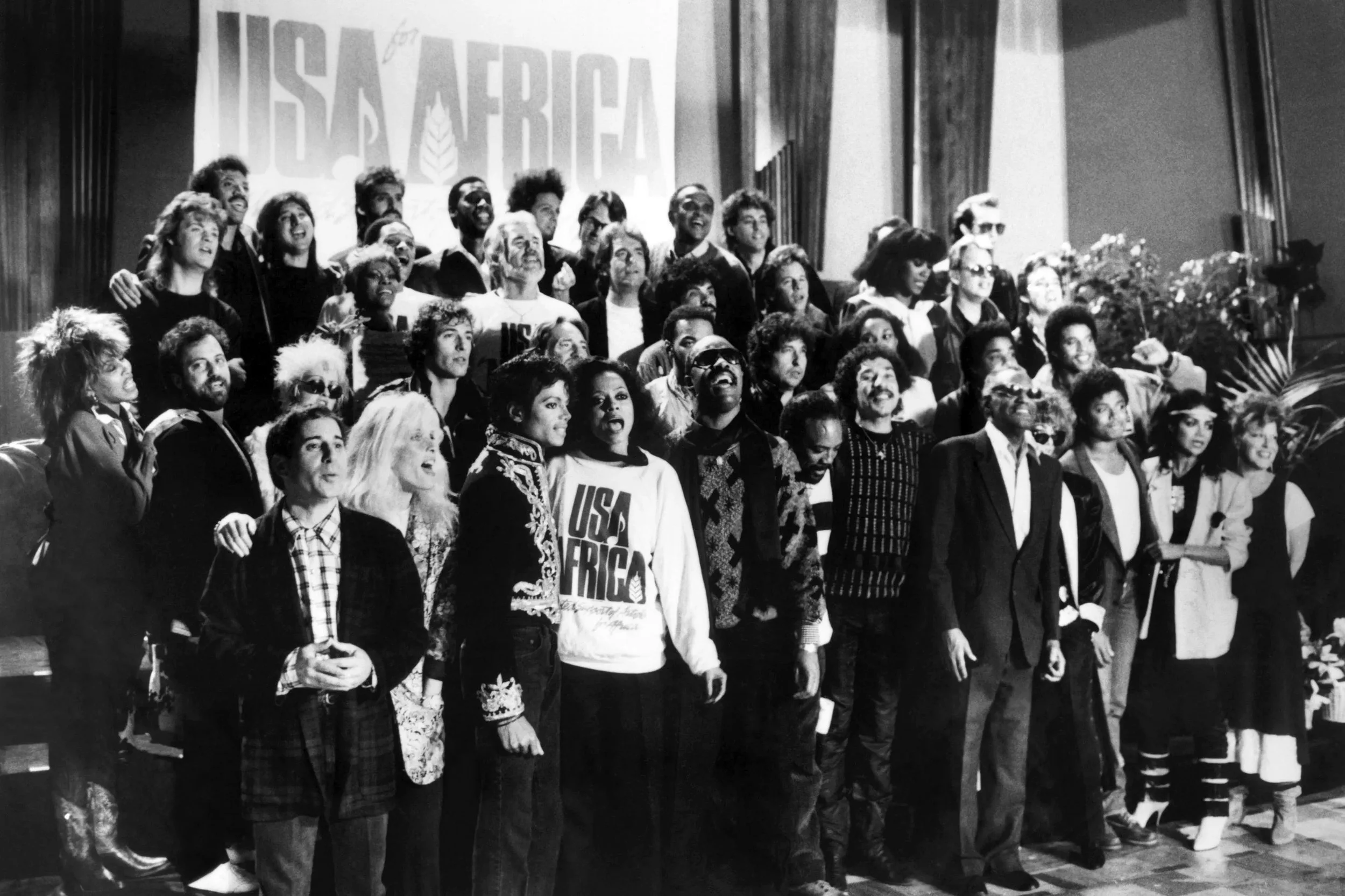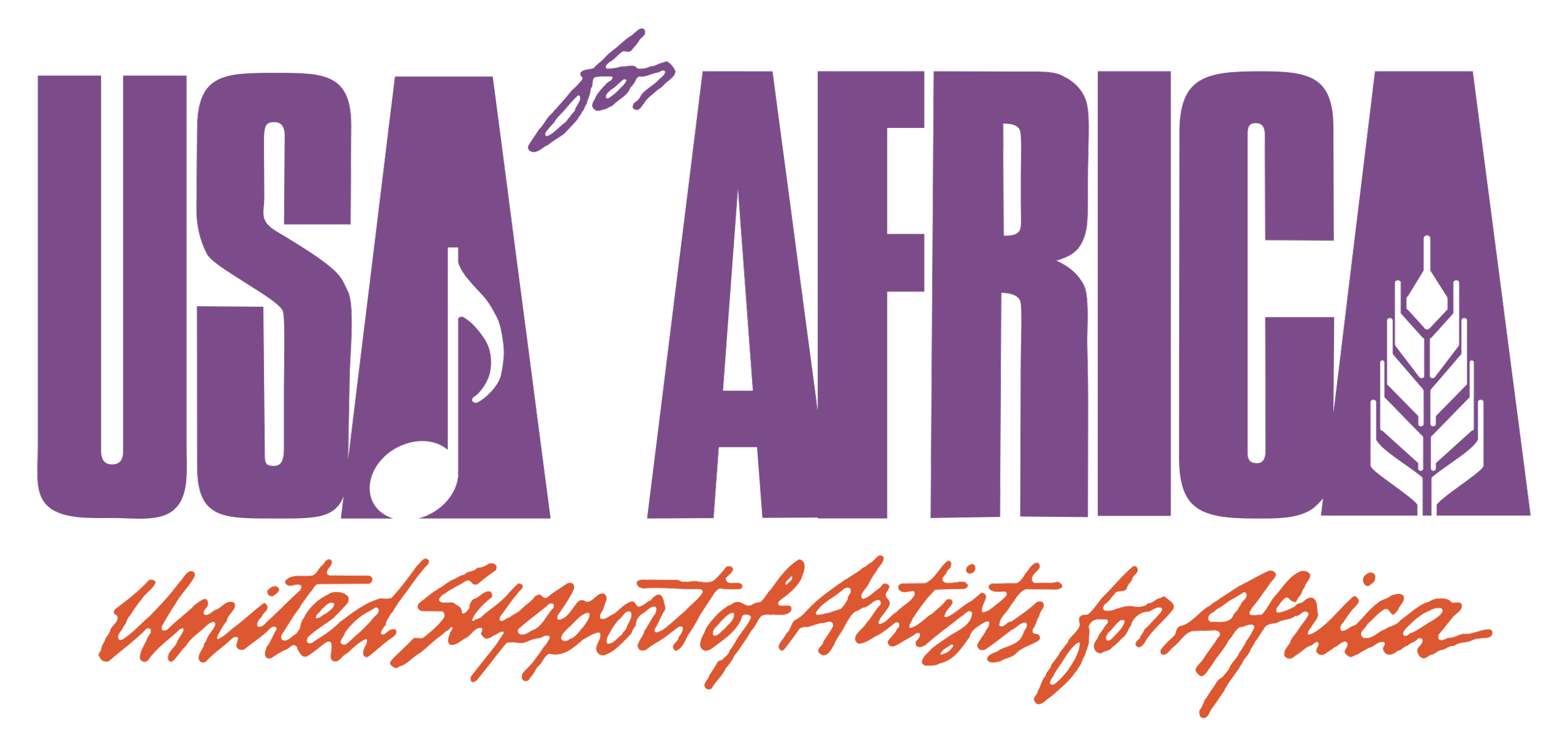40 Years Later: Remembering “We Are the World” and the famine in Ethiopia.
The famine was “the closest thing to hell on Earth.”
The monumental charity single was released on March 7, 1985.
USA for Africa in a 1985 promotional photo.
Henry Diltz; Distributed by Columbia Records, Public domain, via Wikimedia Commons
Prologue
Many of us remember seeing the horrific scenes on our televisions in late 1984 and early 1985. Starting in 1983, after years of civil war and an unprecedented drought, a widespread famine affected Ethiopia, ultimately taking the lives of over 500,000 people (some say as many as 1,200,000). Another 2,500,000 people were internally displaced and almost 200,000 children were orphaned. These events would affect our collective outlook and culture.
Music has the power to bring people together. It has the power to make a difference…
"We Are the World" is a charity single recorded by the supergroup USA for Africa to raise money for the 1983-85 famine in Ethiopia. It was written by the late Michael Jackson and Lionel Richie, and was produced by the late Quincy Jones and Michael Omartian. "We Are the World" topped music charts throughout the world, eventually selling over 20 million copies. Soon after the British group Band Aid released “Do They Know It’s Christmas?” in December 1984, the late musician and activist Harry Belafonte decided to create an American benefit single for African famine relief. Michael Jackson and Lionel Richie completed the writing the night before the first recording session, on January 28, 1985. The event brought together some of the era's best-known recording artists, including Bruce Springsteen, Cyndi Lauper, Paul Simon, Stevie Wonder, and the late Tina Turner. "We Are the World" was influential in subverting the way music and meaning were produced, showing that musically and racially diverse musicians could work together both productively and creatively. The single was released on March 7, 1985. It became the fastest-selling U.S. pop single in history and is also the eighth-best-selling single of all time. Later, on April 5, 1985 at 10:25 am, over 8,000 radio stations played the song simultaneously. "We Are the World" was certified quadruple platinum, becoming the first single to be certified multi-platinum. It later won four Grammy Awards, including for Record & Song of the Year, one American Music Award, and a People’s Choice Award. *
Gonna make a change…
In June 1985, the first USA for Africa cargo jet carrying food, medicine, and clothing departed for Ethiopia and Sudan. Included in the supplies were high-protein biscuits, high-protein vitamins, medicine, tents, blankets, and refrigeration equipment. Harry Belafonte, representing the USA for Africa musicians, visited Sudan in the same month. The trip was his last stop on a four-nation tour of Africa. Tanzanian Prime Minister Salim Ahmed Salim greeted and praised Belafonte, telling him, "I personally and the people of Tanzania are moved by this tremendous example of human solidarity." Following Michael Jackson’s death in 2009, Elias Kifle Maraim Beyene, who grew up in Ethiopia and was a beneficiary of the aid provided by the single, stated:
“I won't ever forget Michael Jackson because his contribution to the song We are the World had a very significant effect on my life. I am 50 now but 25 years ago I was living in Addis Ababa, Ethiopia, which at that time was suffering from a long drought and famine. It was a terrible situation. Lots of people became sick and many more died. Around one million people in all were killed by the famine. In 1984 Michael Jackson, along with a number of other leading musicians, made the song We are the World to raise money for Africa. We received a lot of aid from the world and I was one of those who directly benefitted from it. The wheat flour that was distributed to the famine victims was different to the usual cereal we bought at the market. We baked a special bread from it. The local people named the bread after the great artist and it became known as Michael Bread. It was soft and delicious. When you have been through such hard times you never forget events like this. If you speak to anyone who was in Addis Ababa in at that time they will all know what Michael Bread is and I know I will remember it for the rest of my life.”
"We Are the World" has been recognized as a politically important song, which "affected an international focus on Africa that was simply unprecedented". It has been credited with creating a climate in which musicians from around the world felt inclined to follow. "We Are the World", along with Live Aid and Farm Aid, demonstrated that rock music had become more than entertainment, but a political and social movement. *
As an 11 y/o, there wasn’t a way for me to make an impact in eliminating world hunger. However, “We Are the World”, as well as Live Aid, further opened my young eyes to the horrors and iniquities that sometimes inflict humanity. Said differently, I became “sentient”; aware of current events and geopolitics. Today, the way we interact, essentially live, is mostly digitized and ultimately, commoditized; contemporary music and the current music industry included. All of this digitization can quickly make people feel out of touch, out of control, and in turn, alone. Thus, empathy and proactive interaction should remain paramount in each of our lives; examine the human condition and work to make it better.
* Source: Wikipedia.org

